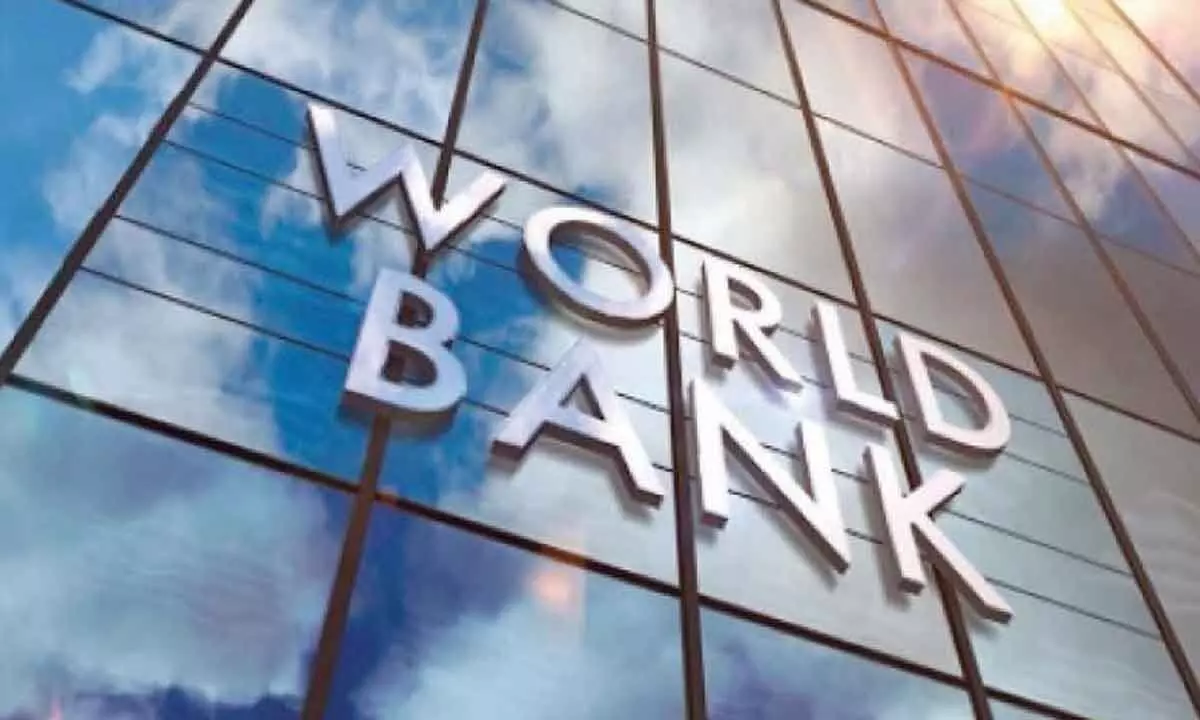World Bank steps in to mediate India-Pak water dispute

The World Bank announced the beginning of two parallel legal processes to address Pakistans concerns over two hydropower projects on the western rivers by India in violation of the Indus Basin Treaty, breaking a six-year-old gridlock.
The World Bank announced the beginning of two parallel legal processes to address Pakistans concerns over two hydropower projects on the western rivers by India in violation of the Indus Basin Treaty, breaking a six-year-old gridlock.
The World Bank, which brokered the I960's Indus Basin Treaty took a complex path after Islamabad and New Delhi could not build consensus on any single mechanism for the dispute resolution, given in the treaty, The Express Tribune reported.
"In line with its responsibilities under the Indus Waters Treaty, the World Bank has made the appointments. in the two separate processes requested by India and Pakistan in relation to the Kishenganga and Ratle hydroelectric power plants," the bank said in a statement.
India had requested for appointment of a 'Neutral Expert', while Pakistan opted for Court of Arbitration.
In response, Michel Lino has been appointed as the Neutral Expert and Professor Sean Murphy has been appointed as Chairman of the Court of Arbitration, according to the World Bank.
They will carry out their duties in their individual capacity as subject matter experts and independently of any other appointments they may currently hold, it added.
"The Court of Arbitration has the authority to give a stay order, while the Neutral Expert does not have such powers," Syed Meher Ali Shah, Pakistan's Indus Commissioner, told The Express Tribune.
"The World Bank acted after Pakistan and India could not develop consensus on any single process," he added.
In 2016, Pakistan asked the World Bank to facilitate the setting up of a Court of Arbitration to look into its concerns about the designs of the two hydroelectric power projects. India asked for the appointment of a Neutral Expert for the same purpose.
The matter remained lingering for the past six years.
The requests from both Pakistan and India came after the Permanent Indus Commission remained engaged in discussions on the matter for a while, The Express Tribune reported.
In recent months, Pakistan's Executive Director to the World Bank, Naveed Kamran Baloch, also played an effective role in convincing the bank to accept Islamabad's position.
Earlier, in 2018, the World Bank had asked Pakistan to withdraw its request for the Court of Arbitration.
"The World Bank continues to share the concerns of the parties that are carrying out the two processes concurrently posing practical and legal challenges," said the statement.
"The World Bank is confident that the highly qualified experts appointed as Neutral Expert and as members of the Court of Arbitration will engage in fair and careful consideration of their jurisdictional mandate, as they are empowered to do by the Treaty," it added.
The 1960 Treaty says that the Court of Arbitration can be formed when one or both the parties give "opinion (that) the dispute is not likely to be resolved by negotiation or mediation".
The two countries disagree whether the technical design features of these two hydroelectric plants contravene the Treaty.
The disagreement between India and Pakistan concerns the design features of the 330-megawatt Kishenganga, built on Jhelum River and the 850p-megawatt Ratle hydropower project, being set up over Chenab River.
India inaugurated the Kishenganga project in 2018, while work on the Ratle project began a few months ago, The Express Tribune reported.
However, if any party unilaterally builds a project, it carries all types of risks. The World Bank's decision to take six years to begin the legal processes provided an opportunity to India to complete the Kishenganga project.
The Treaty designates these two rivers, as well as the Indus, as the "Western Rivers" to which Pakistan has unrestricted use with some exceptions.
Under the Treaty, India is permitted to construct hydroelectric power facilities on these rivers, subject to constraints specified in Annexures.
The World Bank says that as a signatory to the treaty, its role is limited and procedural.
In particular, its role in relation to "differences" and "disputes" is limited to the designation of individuals to fulfil certain roles in the context of Neutral Expert or Court of Arbitration proceedings when requested by either or both of the parties.
The World Bank has said in the past that it worked to seek an amicable resolution and multiple high-level meetings were convened and a variety of proposals were discussed.
On March 31, 2022, the World Bank decided to resume the process of appointing a Neutral Expert and a Chairman for the Court of Arbitration.

